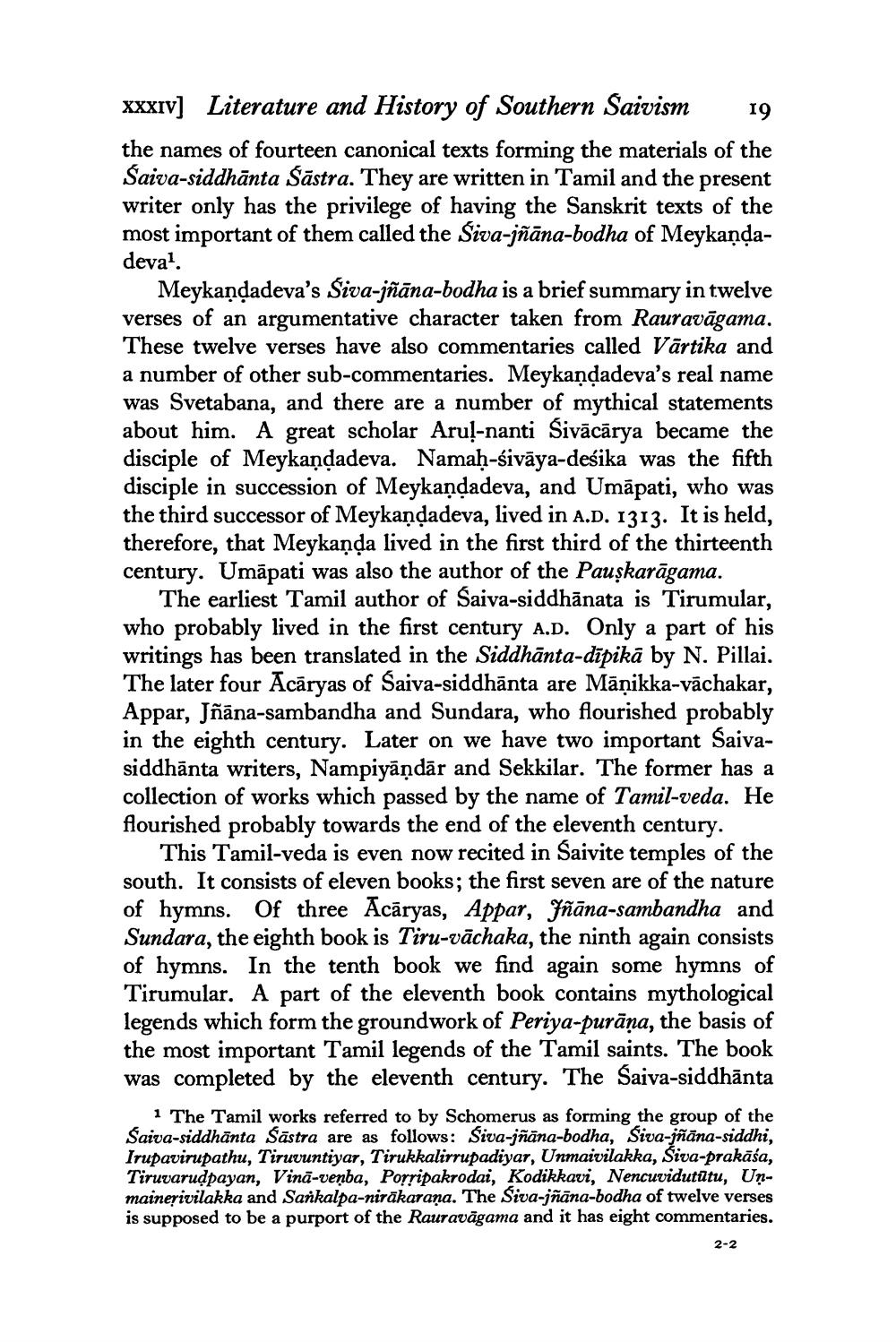________________
XXXIV] Literature and History of Southern Saivism 19 the names of fourteen canonical texts forming the materials of the Saiva-siddhānta Šāstra. They are written in Tamil and the present writer only has the privilege of having the Sanskrit texts of the most important of them called the Siva-jñāna-bodha of Meykandadeval.
Meykaņdadeva's Siva-jñāna-bodha is a brief summary in twelve verses of an argumentative character taken from Rauravāgama. These twelve verses have also commentaries called Vārtika and a number of other sub-commentaries. Meykaņdadeva's real name was Svetabana, and there are a number of mythical statements about him. A great scholar Aru!-nanti Sivācārya became the disciple of Meykaņdadeva. Namaḥ-śivāya-desika was the fifth disciple in succession of Meykaņdadeva, and Umāpati, who was the third successor of Meykaņdadeva, lived in A.D. 1313. It is held, therefore, that Meykaņda lived in the first third of the thirteenth century. Umāpati was also the author of the Pauşkarāgama.
The earliest Tamil author of Saiva-siddhānata is Tirumular, who probably lived in the first century A.D. Only a part of his writings has been translated in the Siddhānta-dīpikā by N. Pillai. The later four Acāryas of Saiva-siddhānta are Māņikka-vāchakar, Appar, Jñāna-sambandha and Sundara, who flourished probably in the eighth century. Later on we have two important Saivasiddhānta writers, Nampiyāņdār and Sekkilar. The former has a collection of works which passed by the name of Tamil-veda. He flourished probably towards the end of the eleventh century.
This Tamil-veda is even now recited in Saivite temples of the south. It consists of eleven books; the first seven are of the nature of hymns. Of three Acāryas, Appar, Jñāna-sambandha and Sundara, the eighth book is Tiru-vāchaka, the ninth again consists of hymns. In the tenth book we find again some hymns of Tirumular. A part of the eleventh book contains mythological legends which form the groundwork of Periya-purāņa, the basis of the most important Tamil legends of the Tamil saints. The book was completed by the eleventh century. The Saiva-siddhānta
1 The Tamil works referred to by Schomerus as forming the group of the Saiva-siddhānta Šāstra are as follows: Siva-jñāna-bodha, Siva-jñāna-siddhi, Irupavirupathu, Tiruvuntiyar, Tirukkalirrupadiyar, Unmaivilakka, Siva-prakāśa, Tiruvarudpayan, Vinā-venba, Porripakrodai, Kodikkavi, Nencuvidutūtu, Unmainerivilakka and Sankalpa-nirākarana. The Siva-jñāna-bodha of twelve verses is supposed to be a purport of the Rauravāgama and it has eight commentaries.
2-2




